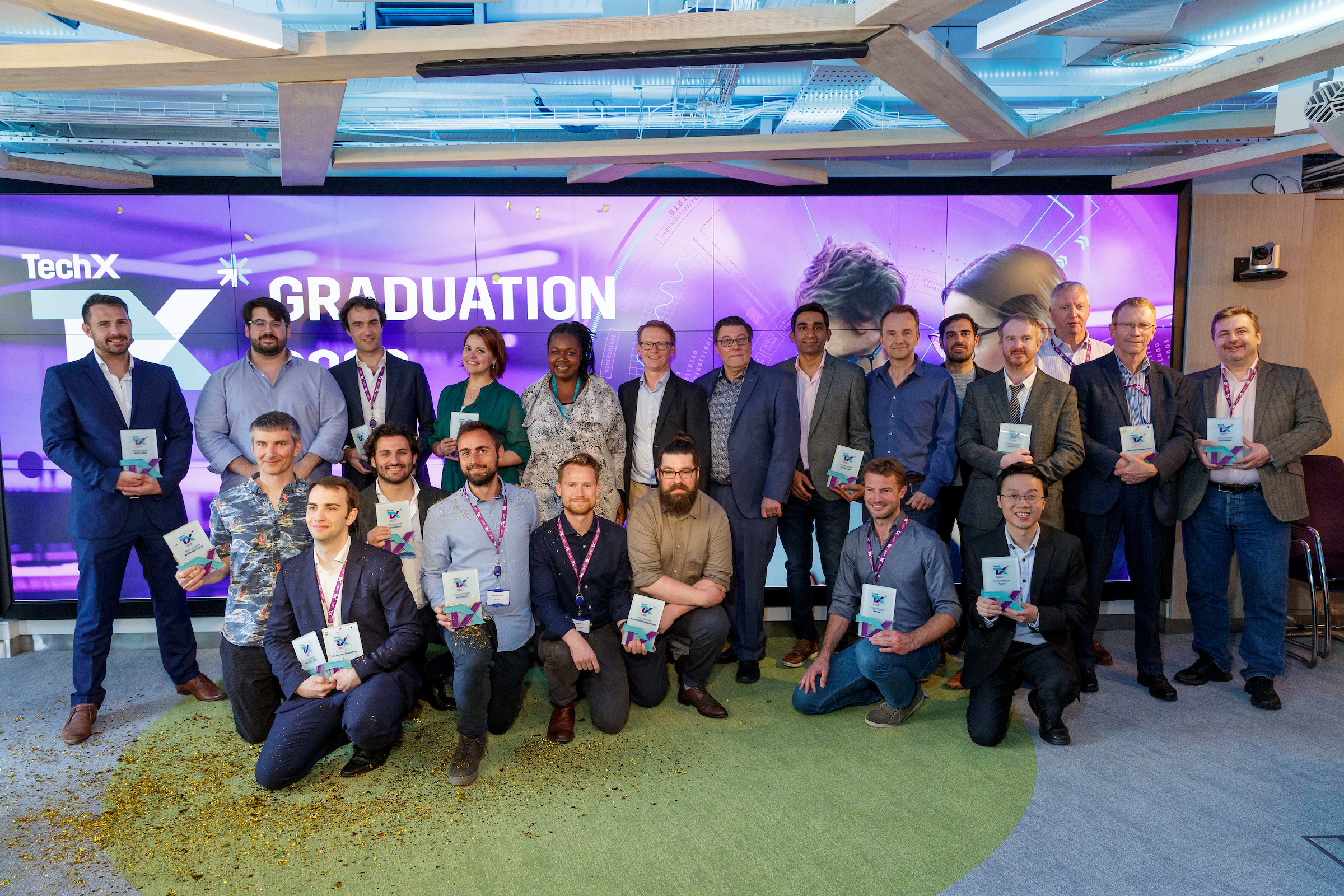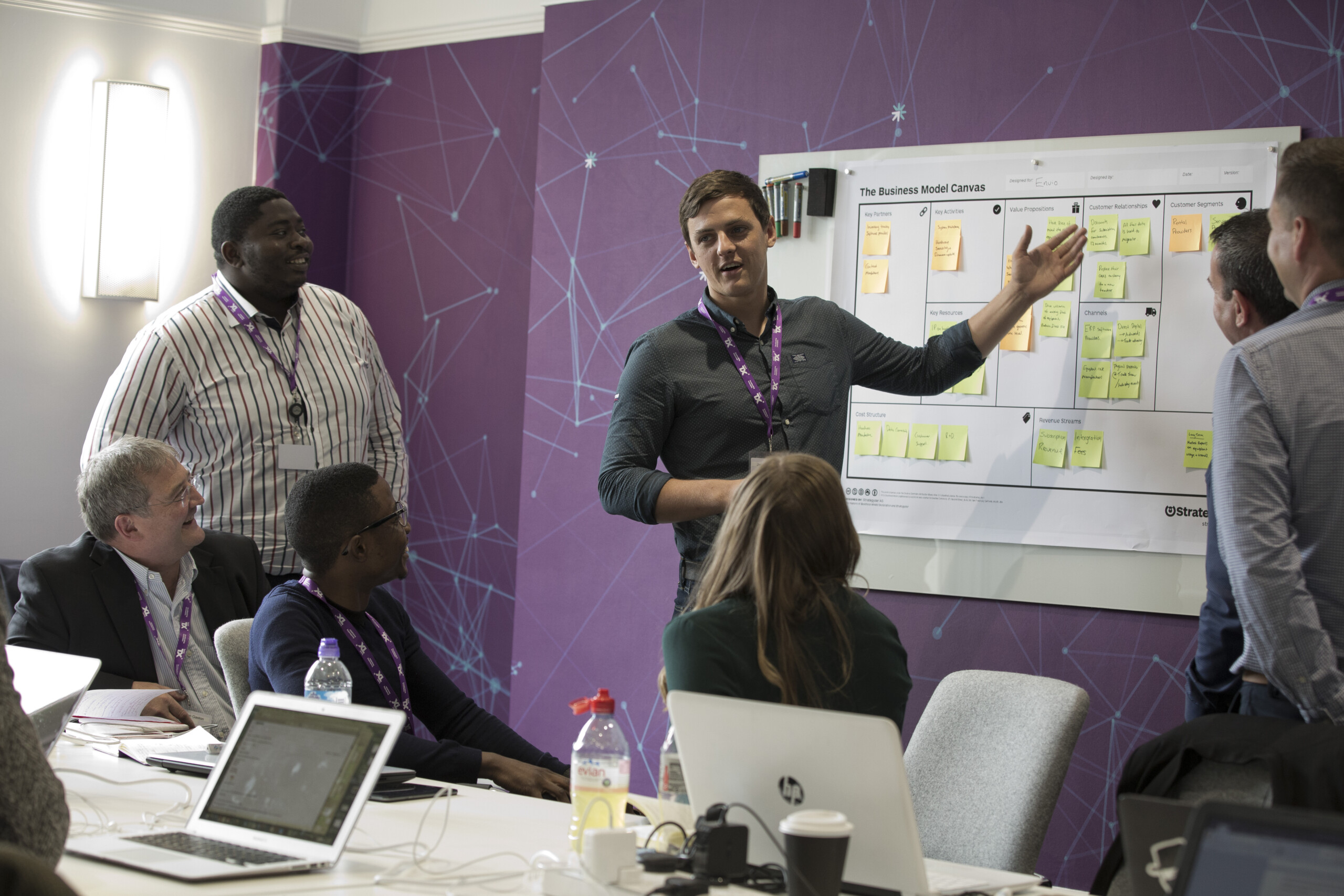NEWS & INSIGHTS | article
Could a lack of start-ups jeopardise our net-zero future?

There is a lack of start-ups due to funding crunches and a lack of support, making accelerator programmes like the Net Zero Technology Centre’s TechX Clean Energy Accelerator critical.
The TechX Clean Energy Accelerator, now in its sixth year, recently announced its 2024 TechX start-up cohort – twelve high-potential hopefuls seeking opportunities to develop their promising technologies.
Mark Anderson explained how incredible it is to see many entrepreneurs leave comfortable jobs to follow their dreams and make a difference.
And he is in the privileged position to follow their journeys to success.
Said Anderson: “It’s wonderful to work with start-ups, they’re so tenacious, innovative and passionate. They have a personal stake in the business – they’re bootstrapped in.”
The TechX Accelerator – a much-needed boost
The mission of Net Zero Technology Centre (NZTC) is to work with industry, government and academia to drive technology innovation and accelerate the transition to net zero.
“We do this in a number of ways. As a centre, we develop and co-manage technology projects. We run yearly open innovation programmes to help find the best and most promising technologies that contribute to accelerating the energy transition. From hundreds of ideas, we award winners with funding or in-kind support from industry, or both,” explained Anderson.
“We also support start-ups through our TechX Clean Energy Accelerator – a boot camp for start-ups that helps them develop their technology, their business and their team.”
“The accelerator lasts fifteen weeks, after which there’s a further two years of support. The start-ups receive free working space, help with fundraising, and introductions to investors and potential customers.“
“Ultimately, the focus of the accelerator is to advance the technology readiness level and move to commercialisation and adoption.”
“Working with start-ups is an absolutely critical part of what NZTC does. It brings a huge amount of innovation and novelty into the field, which is really needed.”
Types of innovation
When asked about the types of tech and innovation making an impact, Anderson made it clear there’s a variety and a lot to be excited about.
“In terms of the TechX Clean Energy Accelerator, we’ve accelerated 57 companies through five cohorts. The current sixth cohort will increase this figure to 69 companies. These companies are developing a range of low-carbon solutions, such as hydrogen, offshore automation, decarbonised heat, alternative fuels and green chemicals.”
“This year we have a start-up called HyWaves, developing a power management control system to increase hydrogen production. Another, called Kali Technology, is developing a carbon-zero industrial heating process using low-cost, integrated heat pump technology.“
“Many industries can benefit from what the start-ups offer. Apleum, for example, is a start-up converting renewable energy, carbon dioxide and water into zero-carbon jet fuel. This could address the challenges in aviation, a sector which is tough to decarbonise.”
Blast from the past
Anderson remembers Mocean Energy, a start-up with a wave device from their 2019 cohort.
“There were nine people in the company. We have a picture of some of their team holding their model wave energy converter weighing a few kilogrammes.”
“Fast forward to 2022 and they now have a full-size technology that is 20-metres long and weighs 38 tonnes. Right now, it’s being trialled at EMEC, off the coast of Orkney.”
“That’s just one of the projects we’re supporting and it’s a fantastic example of a technology that’s benefitted from the support of an accelerator to get it to development and demonstration.”
Anderson explains that these kinds of hardware technologies do not provide quick wins. They have challenges that need to be ironed out through a great deal of trialling and testing.
“They need to raise a lot of money. They need patient capital and patient investors to get them to commercialisation. But the potential rewards of getting there are huge.”
Tapping into the value of start-ups
Anderson stated that the International Energy Agency estimates that by 2050, 35% of the projected greenhouse gas abatement requirements will need to come from new technologies that aren’t commercially available yet.
“That’s a value of about £15 trillion ($19 trillion). And a lot of those technologies will be developed by start-ups.”
“There is a huge requirement for innovation from start-ups that have been formed but aren’t commercial yet. Their ideas are game-changing, but they need the necessary support to unlock their full potential.”
Anderson added that the amount of transformation required to reach net zero is vast. Currently, start-up creation and development are neglected by the markets and there are significant challenges to be overcome.
The challenges begin with having to dream up a novel, potentially disruptive technology that solves one or more industry problems. This is followed by the selection of a team who can support the commercial and technical sides of the project and finally, gathering the skills needed to drive the business.
“A start-up needs to take care of the technology, commercial, legal, intellectual property, accounting, HR, and so on. That’s an awful lot for anyone to take on.”
“Programmes like ours are designed to give those start-ups help, resources and expertise to draw on to grow.”
Securing the finance
Anderson emphasised how critical it is to secure the necessary funding.
“Money is something start-ups clearly need. We provide them with a grant of up to £100,000 ($127,000) each to kickstart their journey and enable them to raise secure additional investments to accelerate their progress.”
However, policy gaps can make funding a challenge, coupled with a current funding crunch, said Anderson.
“Many start-ups are coming to us saying, they’re short of funds and asking for introductions to investors. It’s a real problem and many start-ups are not able to raise as much as they need.”
A shortage of funding, said Anderson, slows progress.
To combat this, Scottish Enterprise, which is funded by the Scottish Government, co-invests as an equity investor alongside other investors in Scotland, like angel groups, explained Anderson.
“This works well, but there is still a shortage of funding which government would do well to look at.”
Anderson suggests governments take a page out of the US’ book, considering how the Inflation Reduction Act has been able to spur innovation and support start-ups through various funding mechanisms.
Anderson concluded by stating there is currently a surprising shortage of start-ups, which makes it even more important to encourage and support these ventures.
“Maybe there is a technology out there crying to be spun out and they just need a nudge.”
These nudges are critical as the next generation of innovation and the solutions for the climate challenge depend on it.
Subscribe for the latest updates



